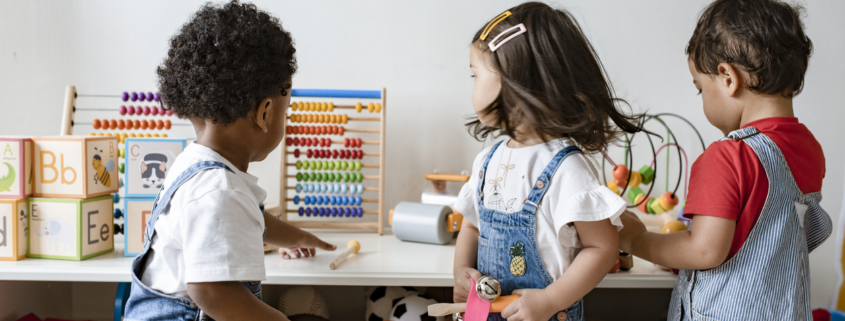How to Talk to Your Child About Friends
Friends are important parts of our lives because we choose to interact with them. For children, making and having friends is probably the most valuable experiences they can have. Looking back on my childhood, I can remember having amazing experiences with my friends. As I grew older, I was able to see how those friendships changed over time. Many parents, especially those who are raising teens begin to worry about the peers who may be negative influences. This can cause tension in the home if parents do not agree with their child’s choices in friends. Below are some tips to help parents to talk with their children about friends.
It is important to mention that this blog was written before the COVID-19 epidemic. Even though we are needing to practice social distancing, now would be the perfect time on how to talk to your child about friends. Once we can socialize in groups, please try some of the suggestions to see if your impression of your child’s friendship choices improves.
Early Age Friends
When children are younger, it is important for parents to demonstrate positive friendship behaviors and discussions. First, children should be asked what they would like in a friend. Hopefully, this helps children to begin looking for positive attributes in others. Also, it is important for children to practice how to be a good friend to others. Parents could pretend to be a same age peer while playing and positively praise their child when they engage in socially appropriate behaviors. Next, children and parents need to thoroughly discuss the difference between friends, best friends, and other students who are in their class. Many schools are adopting the philosophy that everyone in a child’s homeroom class is a “friend.” While that idea is good in theory, it is difficult to translate to the real world. We all have people in our lives who we prefer over others and that is okay. I believe the main goal is to teach your child to respect others. This way, no one feels left out or excluded but it gives the child a choice in making deeper connections with whom they choose.
(Pre)Adolescent Friends
For children in middle and high school, it is developmentally appropriate that they are investigating who they are and how they relate to the world. They are also searching for more independence, especially who is in their social circle. Parents of teens begin to worry about friends due to the larger and more diverse environment, and they worry about negative influences on their child’s behavior. First, it would help to ask your child questions in a relaxed setting. The discussion will be more productive if it is treated as a conversation and not an interrogation. Asking about your child’s choice in friends when they are wanting to hang out with them is not the best time to have that discussion. I would suggest having the conversation with the child by themselves and with limited distractions. One could begin the conversation by simply asking, “How is it going with your friends?” or having their child to describe their friends’ personalities. It is important for this conversation to be fun, relaxed, and relatable. Yes, one could say making friends now is a lot different than twenty years ago; however, the same core issues are still there. Many of us struggled with wanting more friends or being in friendships that were not positive. If you experienced those difficulties growing up, it would be beneficial to share with your child.
A show of good faith may be for parents to invite their child’s friends over to the home, especially those of concern. I think having pizza, board/video games, and movies would help everyone to feel more comfortable. That way you would be able to see your child’s friends in a more relaxed environment. It is important to not judge a book by its cover and to be open to your child having a variety of friends. If you try these ideas and still feel uncomfortable with your child’s friends, it is best to have an open and honest conversation. Simply hearing that a friend is a “bad influence” may not be enough to deter most teens. You may consider saying why you have reservations but also your personal experience in feeling so. Hopefully, this will help your child to understand you better. Whenever we have disagreements the best way to end the conversation is with a compromise. It may be beneficial for you and your child to discuss what would be a good compromise when it comes to their friends.
In conclusion, I am sure that parents would like for their child to have as many friends as possible. However, that can cause a lot of concern for parents. Friends should be an open and ongoing discussion with children. Be open to sharing with your child but also, be open to them sharing with you about their feelings.




I like how you pointed out that it is important for kids to practice being good friends with others. With that in mind, I would think that signing your children up for youth sports could be a good way for them to learn how to be good friends. It seems like youth sports would be a good way for kids to learn how to encourage others in a positive manner.